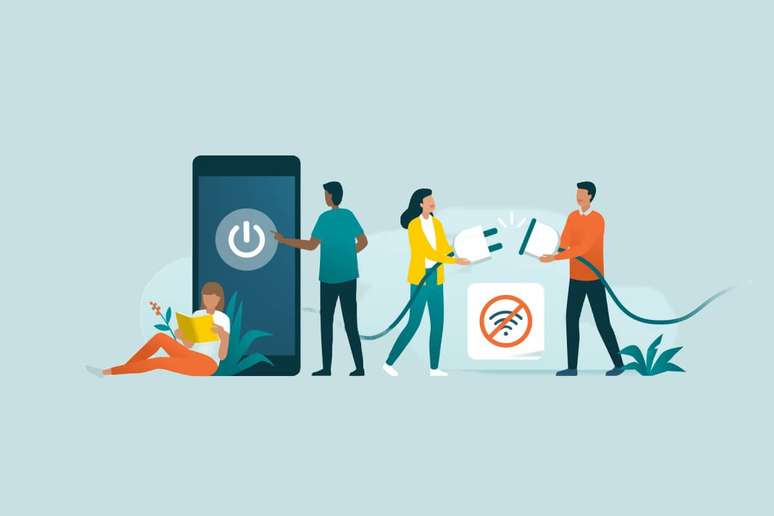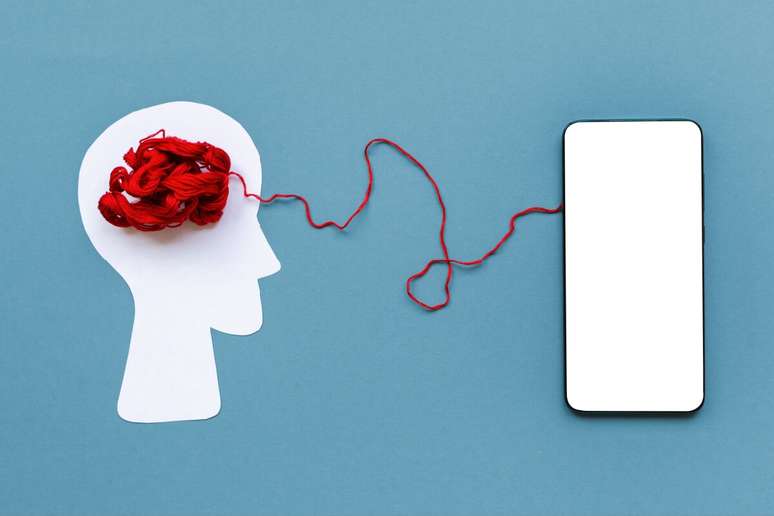Some habits can reduce losses and contribute to well-being
The use of chat applications and social networks is increasing in Brazil. According to the “Digital 2024: Brazil” survey, carried out by DataReportal, the country ranks second globally for time dedicated to social networks, behind the Philippines.
Furthermore, according to Hootsuite’s “Social Media Trends 2025” survey, Brazilians spend almost 4 hours a day connected, which is higher than the global average of 2.5 hours a day. For 64.8% of people the main reason for using social media is to stay in touch with friends and family, 57.2% of people read news, while 46.5% research products.
However, being among the world leaders in access to social networks is no reason to celebrate. According to psychologist Guilherme Alcântara Ramos, master of Behavior Analysis, excessive use of messaging applications and social networks can harm physical and mental health.
“Being always connected is provocative anxietystress and mental overload, especially due to the need to respond quickly to messages. On a physical level, this habit leads to postural problems, reduces the time dedicated to physical activities and free time, compromises the quality of life and affects physical and mental health”, warns the professor of the Psychology course at UniCuritiba – Ânima Educação institution .
The popularity of messaging applications is due to the ease of communication, the expert emphasizes. “The problem is that constant notifications create the feeling that we need to respond to everything immediately to avoid being left out of conversations.”
Damage for all ages
Social networks have become popular among Brazilians of all age groups, but adolescents and young people are the most vulnerable to the risks of excessive and inappropriate use of screens. According to Guilherme Alcântara Ramos, as they are about to personality developmentthese individuals have their social and relational skills compromised by the intense use of technologies.
Adults and older adults have other problems when they don’t set clear boundaries for online interactions, such as high levels of stress and mental overload. “In the case of older people, who are less familiar with technology, the risk of falling for scams or scams also increases fake news“, says the teacher.

Rational use of cell phones
To balance connection times and slow them down in 2025, psychologist Guilherme Alcântara Ramos advocates the rational use of messaging apps and social networks. Suggestions include limiting your daily Internet usage time, muting notifications at specific times, and allowing time physical activity and free time, the practice of face-to-face communication and restrictions on the use of applications as the only form of social interaction.
In the case of commercial relationships and abusive sending of messages, the expert suggests some strategies. “Message overuse may be noted when there is interference with daily activities, increased stress or anxiety, and when communication becomes exaggerated or invasive.”
Setting limits
The teacher of the Psychology course at UniCuritiba teaches that, to maintain privacy without being offensive, it is essential to establish clear limits and position yourself in a polite and assertive way. “Inform that you prefer not to receive unsolicited messages and suggest more appropriate communication channels. Use automatic replies, if necessary, and be clear about how you will handle communication and messages. This prevents the other party from creating expectations that will not be met, which could have a negative impact on the relationship,” concludes Guilherme.
By Marlise Groth
Source: Terra
Ben Stock is a lifestyle journalist and author at Gossipify. He writes about topics such as health, wellness, travel, food and home decor. He provides practical advice and inspiration to improve well-being, keeps readers up to date with latest lifestyle news and trends, known for his engaging writing style, in-depth analysis and unique perspectives.









